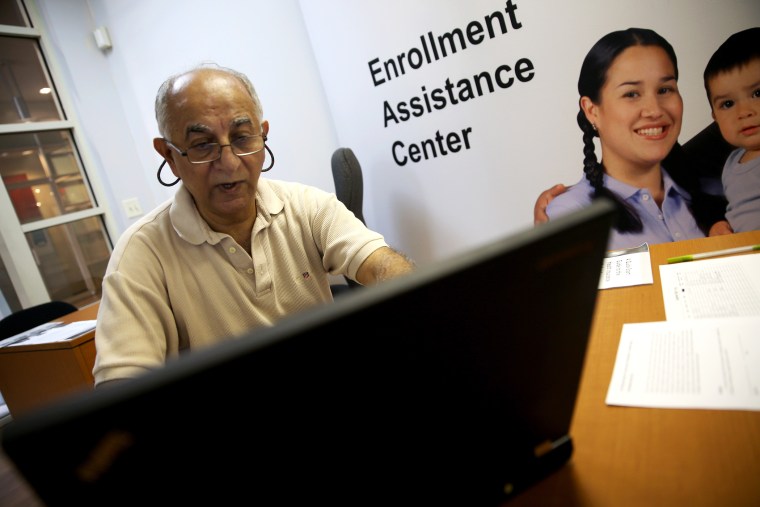Florida is a state that would benefit greatly from what the Affordable Care Act has to offer. It's also a state led by Republican policymakers that have gone to extraordinary lengths to reject the law, regardless of the consequences.
As the Associated Press
reported today, GOP officials in the state have fought the ACA "at every turn," blocking navigators from helping consumers county health departments, prohibiting any public resources to reaching out to the state's 3.5 million uninsured, refusing to create an exchange, rejecting Medicaid expansion, and even filing suit to destroy the law.
But as the open-enrollment period wraps up, the Sunshine State "has emerged as a tale of what went right with President Barack Obama's health care overhaul," in spite of Republican obstructionism.
More than 440,000 Florida residents had been enrolled through the federal marketplace through the end of February, putting Florida on pace to exceed the federal government's initial projections by the time enrollment closes March 31. The numbers are impressive for a state where Republicans control the governor's mansion and both houses of the Legislature. By comparison, Republican-leaning Texas has enrolled 295,000 through the federal site, even though its population is about a third larger than Florida's. Florida's success is due partly to infrastructure created in the swing state by Democratic-affiliated groups during the last three presidential elections, along with continued investment by the Obama administration and nonprofit advocacy groups in the diverse state that will likely be competitive in November's midterm election.
This is clearly evidence of progress on a human level -- the point of the endeavor, obviously, is to provide Americans and their families with access to affordable medical care -- but the politics will matter, too.
The more consumers in a state like Florida sign up and get covered, the harder it is for them to fall for cheap talking points and deceptive ad campaigns -- the real-world proof to the contrary will be hard to refute.
Of course, the state's approach to Medicaid expansion remains a sticking point.
If Florida accepted the policy, it would bring coverage to 1.3 million low-income adults in the state and about $51 billion in federal funding over the next 10 years. Medicaid expansion, in other words, would be a **huge benefit to Florida, more than nearly any other state. It's one of the reasons Gov. Rick Scott (R) grudgingly decided to endorse the idea.
But the GOP-led legislature refused and Florida will go without, on purpose. That said, as Jason Millman
reported the other day, Florida's Democratic U.S. senator would love to help his constituents by circumventing the conservatives in Tallahassee.
Florida Sen. Bill Nelson said he's talking with federal health officials on a plan to go around the state legislature, which strongly opposes expanding Medicaid. But federal officials say their hands are tied. The Florida Current reported on Wednesday that Nelson told state lawmakers that he met with Health and Human Services and Medicaid officials in Washington to see if there's a way for Florida to get Medicaid expansion funding anyway. Nelson reportedly hopes to release some details on the plans in two weeks, the Current reported.
I'll look forward to hearing the details of this gutsy move, because at this point, it appears impossible. Nelson knows the legislature balked, for reasons that don't make any sense, but he seems to think it's possible to bring the resources to the state anyway.
For Floridians' sake, here's hoping he's right, but I wouldn't get my hopes up.
